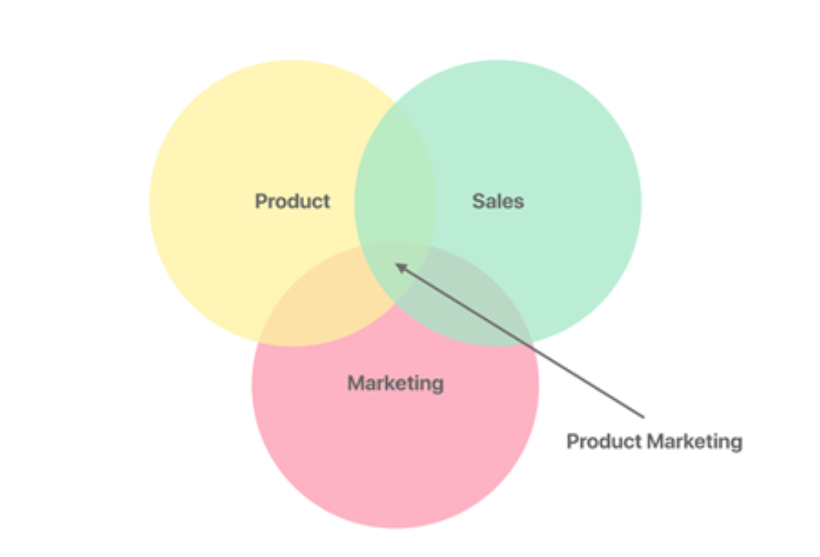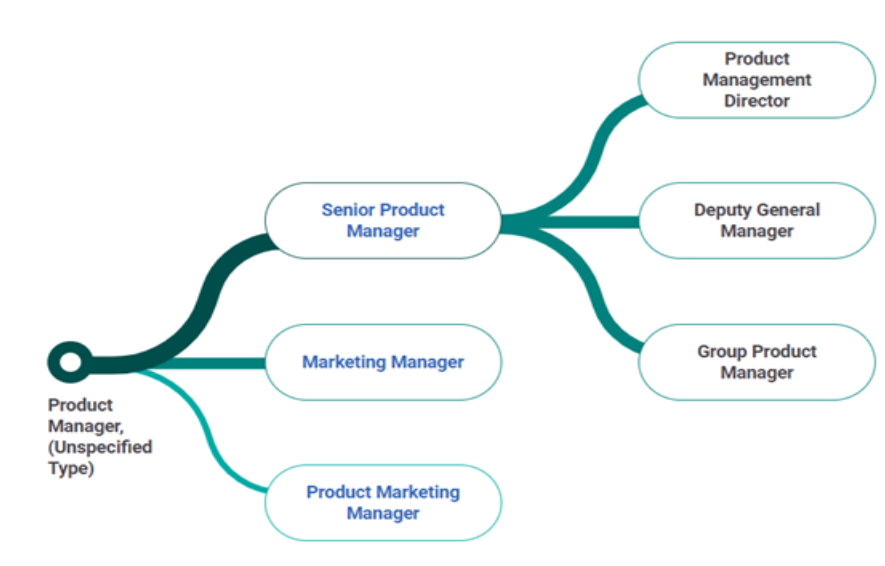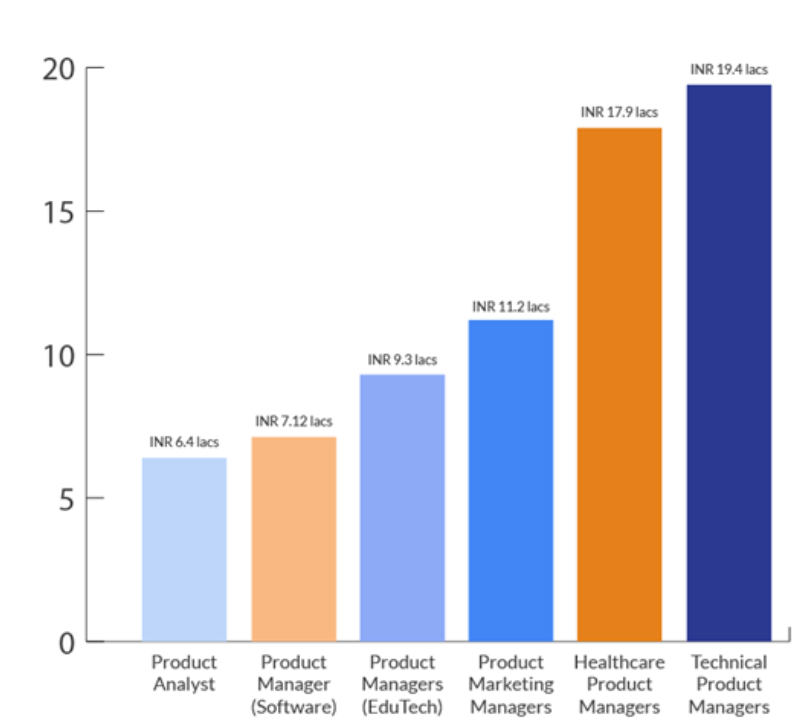Introduction
We often come across the title Product Manager and wonder how this role differs from other PM roles. Product Management is a vital function of a business that has widespread desecrate business functions. The hand behind shaping these pieces of this jigsaw is the Product Manager.
Check out our management programs to upskill yourself.
What is Product Management?
Product management is a necessary function within a business that deals with all phases of the product life cycle (PLM) responsible for producing an innovative and profitable product or service. The PLM is responsible for integrating people, data, processes, and business systems.
The typical stages under product management include product scoping, development, positioning, business needs, demand analysis, planning, certifying, complying, pricing, product launch, marketing of a product and distribution, etc. It provides product information for companies and their extended supply chain enterprise.
It is the responsibility of the product manager to make sure that the product requirements are met and that it is able to gain the confidence of the users. The product managers understand the customer demands and grievances and address those by either integrating or removing certain elements from the product.
Product management is not an isolated domain, and rather it involves inputs from various other fields as well, such as engineering, marketing, etc.
Product managers understand the product and develop the strategy and roadmap for the product. Apart from working within the team and knowing about the ongoings within the organisation, the product managers also maintain proper tracking of the competitor’s products.
Before launching any product in the market, the product management team ensures that it is tested, has the approvals, and has undergone enough demos.
It is due to the understanding of the product managers they can identify the correct positioning of the product and work closely with the marketing team.
Not only that, but they also work closely with the sales team in order to train them on the products. So the people deliberating “Is product management a good career?” should be assured that yes, it is, as it provides good leadership opportunities to product managers.
Product Management Tasks
A product manager’s job description is not stated as distinct and consistent, unlike other subjective jobs, say as software engineer. This is because product managers’ responsibilities vary significantly across the industry sector, businesses, and product lines.
Irrespective of their specific responsibilities, all product managers live with a primary function: drive in introducing, developing, and marketing the products and be responsible for their success of those.
Read: A complete guide on product manager career growth
Product management in organizations is classified into three major categories:
- Strategic product management – It refers to working on strategies and tasks that make the product successful. It involves doing market analysis and research to tackle the needs through trends and demand management. It also includes competitive analysis (including SWOT analysis) to derive reliable project planning.
- Technical product management – It refers to the responsibilities in requirement settings and needs analysis gathering, followed by staging product development and feasibility planning.
- Product marketing – It is responsible for the Go-To-Market phase tasks, in coordination with sales objectives.
Explore our Popular Management Programs
The first two categories catering to product planning and development lie in the “inbound” functions focused on organizational stakeholders. In contrast, the third lies in “outbound” catering distribution and communication in the outside world.

A product marketing manager usually liaisons with a product manager, the sales, and the marketing functions to develop marketing communications to help in the product launch.
In order to perform the tasks required to be done during the product management career, the professionals must possess certain skill sets that are helpful. Some of the skill sets are mentioned below-
- Research skills
- Technical skills
- Product management
- Business acumen
- Innovation
- Communication
- Critical thinking
upGrad’s Exclusive Product Management Webinar for you –
How to craft GTM Strategy for a Product?
Product Management Role
Why product management function is vital in the product life cycle because it lives with the product. The Product Manager does carry out significant PLM tasks, the entire product life cycle –from conception to consumption, such as strategic planning, product roadmaps promotion, marketing, etc., which requires vigilance and directives.
For startup industries, the role is crucial, as the product manager has to devise the entire business workflow afresh. In larger-scale industries, they have narrowed responsibility. The authorized product management experts moderate business between clients, stakeholders, and product development organizations.
They are responsible for ideating, conceptualising, innovating and developing products that are aligned with the company’s vision and are aimed at the target group. Thereon, they are also responsible for strategising the product development process that does not flout any rules and follows the ethical norms and regulations.
The PMs are responsible for the analysis of profits and losses and are in charge of all the documentation and communication.
The young job aspirants having the doubt “Is product management a good career in India?” should be clear that it definitely is a very good option. There is an ample number of employers, and today in almost every company, there is a requirement for product managers.
Based on the focused responsibility in a given channel, their roles are also specialized, such as sales manager, marketing manager, brand manager, business manager, etc.
Salary and Demand
You will wonder why product management is in high demand these days. This is because a Product Manager possesses unique abilities allowing them to work across teams, meet tight deadlines, finish product roadmaps, and more.
According to PayScale, the average salary of product managers in India is ₹1,701,689 per annum. It goes high, up to ₹3,200,000 for experienced candidates with technical domains like a software products. Apart from tech, the logistics and supply chain industry are the highest paying sectors for Product Managers.

Career paths for Product Manager (Unspecified Type). The thickness and colour of lines indicate the popularity of movement from one job to the next.

The graph illustrates why product management stands high. The Technical Product Manager role, with a “technical” base either in qualifications or in the line of experience, earns the highest average salary. Such candidates are required to keep themselves upgraded with technical skills and remain abreast with technological development around. Your field of study adds some credit to the domain and product line. The business skills in the role of project manager add credit.
The job role of each of these product managers differs. As they grow in their career, so are their responsibilities and compensations.
A product analyst’s job role includes researching for market and analyzing the market trends. With the aid of the techniques and research, they are able to give recommendations backed by numbers to the stakeholders.
Whereas, the product managers understand and analyze the consumer needs, and monitor the performance of the products to help in strategizing the roadmap for better growth. The young professionals having the thought “Is product manager a good career?” should be satisfied that yes it is a very good career. It has numerous employers, across locations and countries. Along with that, it gives a really high compensation that grows even more as one grows in their career.
Our Top Management Articles

The product management demand also varies with the type of sector. Currently, not only do IT and ITES companies recruit product managers, but also in other service sectors, project managers play vital roles. The Product Management jobs market in India shows a swift rise in global companies. For example, the LinkedIn job site flashes more than 34,000 jobs, including 12,000 openings on Amazon alone.
A career in product management promises good growth and a successful career. Before diving into this field, understand what the employers look for and, most importantly, the required skill sets. Then get yourself enrolled in a certification program that would help you build your foundation, which would be helpful in your practical life.
Eligibility to Become a Product Manager
If you have an outgoing personality, plus the ability to debate and lead various people in business, can understand the needs of the customers, manage a group of people, gather data from varied sources, and drive towards setting the tone for a product, can make the right decision for the product. Then you are serious about making a high move in the management stream; a career in Product Management results in a better choice.
The business and management cadre students are likely to make the Product Manager roles more fruitful. The eligibility to dive into this line demands the below criteria:
- Minimum graduates in a Business related discipline; master’s degree in management preferred.
- Desirable work experience of 2-3 years in product management and coordination.
- Skillset: mostly lie in management and business acumen.
- Qualities: Leadership, Analytical, Strategic Thinking, Quantitative, Negotiating, Time Management, Operational Management.
Product Management Certification at upGrad
You will find upGrad, the ed-tech company, a provider institution for many courses in technology and management lines. They also offer a six-month certification course in Product Management. This course prepares aspirants of management professionals’ expertise to build a product roadmap and various strategies.
Our Top Management Articles
The strategy models on need analysis and the principle of product management function in a product launch. The course also conducts the walk-through and prototyping for the scenario of the product launch in the market. Students also receive practically shared expertise in case studies and mentoring from industry leaders.
Study Product Management Courses online from the World’s top Universities. Earn Masters, Executive PGP, or Advanced Certificate Programs to fast-track your career.
Skills and Qualities of a Successful Product Manager
A profession in product management calls for a certain mix of abilities and traits that contribute to a product’s success and the company’s overall expansion. By acting as a link between diverse teams, product managers ensure alignment and efficient communication. The following are crucial abilities and traits that a successful product manager should have:
- Strong Communication Skills: Product managers must have the ability to communicate clearly with stakeholders, cross-functional teams, and customers. They must communicate their thoughts, engage in active listening, and promote intergroup cooperation.
- Product managers need to be adept at addressing problems, from deciding which features to prioritise to settling disputes. They can come up with creative solutions and make wise selections because of their strong problem-solving abilities.
- Strategic Thinking: Successful product managers think beyond short-term goals and focus on long-term product vision and company objectives. They align product strategies with the organization’s goals.
- Customer-Centric Approach: Understanding customer needs, pain points, and behaviours is crucial. A customer-centric approach helps in developing products that truly address user needs.
- Data-Driven Decision-Making: Data analysis allows product managers to make informed decisions based on metrics and user feedback. This skill is essential for optimizing product features and measuring success.
- Leadership Skills: Product managers frequently lead without having direct power. They establish a healthy and effective work environment by inspiring and motivating teams to strive towards a common goal.
- Flexibility: Because the tech sector is dynamic, goods must change swiftly. Product managers should be flexible and open to change, modifying their plans in response to changes in the market and new trends.
- User Experience Understanding: To design products that are intuitive, user-friendly, and fun to use, one must have a firm knowledge of user experience (UX) principles.
- Market awareness: It’s critical to stay current on market dynamics, industry developments, and rivals. This aids decision-making and keeps product managers one step ahead of their rivals.
Challenges and Opportunities in Product Management
Although product management presents a stimulating and fulfilling professional path, it is not without its difficulties and chances. Aspiring product managers can get ready for the path ahead by comprehending these elements.
Challenges
- Balancing Priorities: Product managers often juggle multiple priorities, from customer needs to technical constraints. Finding the right balance is challenging but crucial.
- Managing Stakeholder Expectations: Different stakeholders may have conflicting expectations for a product. Product managers must navigate these expectations and find solutions that align with the overall strategy.
- Uncertainty and Rapid Changes: The tech industry is characterized by rapid changes and uncertainties. Product managers need to adapt quickly to shifting market conditions and emerging technologies.
- Decision-Making Under Constraints: Limited resources, time, and budget can pose challenges when making decisions about product features, improvements, and timelines.
Opportunities
- Innovation: Product managers have the opportunity to drive innovation by identifying gaps in the market and creating solutions that address customer needs in unique ways.
- Ownership and Impact: Product managers often have a high degree of ownership over their products. They can see the direct impact of their decisions on product success and company growth.
- Cross-Functional Collaboration: Participating in multiple teams offers chances to learn from and work with specialists in a variety of fields, fostering both professional and personal development.
- Continuous Learning: Product managers are continually learning about emerging technologies, patterns, and user behaviours because of the IT sector’s rapid evolution.
Conclusion
We see the high end developments in emerging technologies like AI, ML, IoT, Cloud, and Big data, all set to a revolution in our daily lives and balance with parity products and product-based services. The development is ever-going and challenging. So it’s likely to raise the need for Product Management. This will undoubtedly lead to increased product management demand in the industry.
Post Graduate Certificate in Product Management is set to cope with the demand. They are necessary for the fulfilment of workforce needs through a constant learning mission. The short-term certification in a product management program can help professionals gain new opportunities.












































![Project Manager Salary in India in 2024 [For Freshers & Experienced]](/__khugblog-next/image/?url=https%3A%2F%2Fd14b9ctw0m6fid.cloudfront.net%2Fugblog%2Fwp-content%2Fuploads%2F2020%2F07%2F684.png&w=3840&q=75)



